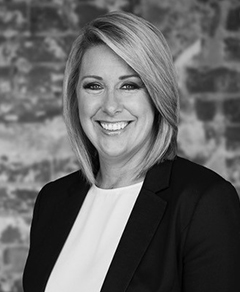The ACCC's Digital Platforms report is with the Treasurer - "profound" changes to adtech, user tracking and competition are in play

Stay uninformed and disinterested if you must but anyone with anything to do with Google, Facebook or user data (that's everyone) needs this quick lowdown on what's next from the ACCC's final report into the Digital Platforms Inquiry. Even giants like Google are said to be a little nervous.
"The implications could be profound, affecting not only how our clients might use a business like Google or Facebook, but also how they treat their own data and what we can – and cannot – buy into.”
You need to know this:
- The ACCC's final recommendations from the Digital Platforms Inquiry is now with the federal treasurer, Josh Frydenberg
- The report is unlikely to be released publicly in the short-term
- It's still unclear how the government will respond to the ACCC's recommendations but its action after the Christchurch massacre and Prime Minister Morrison's achievement to reach a consensus at the G20 Summit in recent days to force social media platforms to control violent content are seen as signals
- The ACCC's mandate was to investigate competition issues related to the sustainability of journalism but the regulator's attention has turned with equal vigour to consumer privacy and online advertising markets. This could be troublesome for industry
- If marketers and media face the same compliance requirements for consumer tracking, disclosure and consent as big tech companies, Nine and News Corp say Google and Facebook will entrench their dominance. They have the resource and profits to better absorb compliance costs than brand owners and media companies
- "Privacy is not going to fix it," says News Corp's GK Schubert
- Omnicom's Kristiaan Kroon is concerned with the market being left to deal with "an enormous few"
- Kroon says anything that looks like "scope creep" from the ACCC around data and privacy is "a big issue for us and our clients that we need to be across"
- Media groups like Nine and News Corp want the focus to stay on competition issues so they can negotiate reasonable and sustainable trading terms for their content being carried by the social platforms
- Facebook is being more difficult that Google, they say, but neither will negotiate outside their global terms. Nine wants the ACCC to force big tech into arbitration on financial terms for the use of its content
- Nine and News point to a US report which shows Google extracts $US5 billion in value from newsmedia content
- News Corp's Schubert called the timing of Facebook's content deal with Seven Network a few weeks ago as "cute". The terms are unlikely to be sustainable
- Nine's Clare Gill says the company is "hopeful" and "we believe we've had a very good hearing that the sustainability of content is key to this review"

Kristiaan Kroon, Chief Investment Officer, Omnicom Media Group
"Enormous implications" - Omnicom's Kristiaan Kroon
The ACCC’s inquiry has been rumbling on so long in the background that, for marketers, it has been a nebulous but “remote” threat in the face of day-to-day firefighting, says Kristiaan Kroon.
But with GDPR’s implications beginning to bite locally and US regulators stepping up investigations into big tech and data privacy, that may be about to change: Australian regulators are also now looking very closely into those areas.
“The [global data privacy] implications have already reached Australia,” says Kroon. Key areas of focus are the treatment of consumer data, “which we, our advertisers and our media partners are handling in various ways every day”. If the ACCC heads into that territory, it could disrupt the ecosystem as we know it, warns Kroon. The implications could be profound, affecting “not only how our clients might use a business like Google or Facebook, but also how they treat their own data and what we can – and cannot – buy into,” says Kroon. “So enormous implications.”
Kroon thinks the ACCC should stick to its competition remit. If it does, he warns local media may also feel the impact of any new regulation ultimately stemming from Rod Sims’s report.
“I would say in the last couple of years the broader market has suffered from not just one or two but five or six businesses that play across so many parts the ecosystem because of their integration. That’s tough. What does [the report] mean for the broader play, not just the gorillas?”
Marketers have largely ignored calls from Rod Sims to engage in the inquiry. Kroon says they will have to take a lot more notice if the ACCC comes down hard on data privacy.
“There needs to be a focus [from regulators] on competition from a platform perspective, that’s where we started,” says Kroon. “Anything that moves to a broader kind of ‘scope creep’ around data and privacy is a big issue for us and our clients that we need to be across.”
"So whether you are a publisher, an advertiser or a marketing company, you end up having to use Google’s stack to buy and sell inventory ... data collection is really important for them"

News Corp's head of policy and government affairs, GK Schubert
Data privacy won't fix the problem - News Corp
News Corp head of policy and government affairs, GK Schubert, disagrees that Australia’s local media incumbents are in the same league as big platforms; “that is absolutely not the case”. And she thinks data privacy is very much in the ACCC’s scope.
ACCC chairman Rod Sims “has been very clear that consumer issues as well as competition issues are part of his remit”, she says.
“On the privacy front, the consumer issues that have arisen are in relation to how the digital platforms, Google and Facebook in particular, deal with consumer data,” says Schubert, citing “take it or leave it” terms of service around data as “serious considerations” for the ACCC.
Schubert suggests any regulation as a result of the inquiry that captures all businesses, rather than “focusing on the perpetrators of the crimes” could actually worsen competition - and place a disproportionate burden on businesses without fixing the problem. Google and Facebook, she says already have “troves of data” and are “probably the most able to handle compliance”.
While privacy aspects are rightfully within scope, Schubert agrees the ACCC must prioritise meaningful intervention around competition.
“If you don’t do something, there is no more competition. Privacy [regulation] is not going to fix that. We have not seen a new search engine make any headway [since the advent of] GDPR rules. We have not seen any new social platform [emerge or thrive],” says Schubert.
As such, regulatory “tweaks” won’t cut it.
“This absolutely needs to go to the heart of [the platforms] and actually how they behave in marketplaces - and that’s where the ACCC's focus is. Without it, there will be no innovation. There will be no competition. There will be no other avenues to market and that is an enormous problem.”
News Corp has been vocal on the need to structurally separate the platforms, particularly Google, in order to unwind their market dominance.
“Data collection is really important for them - and that comes from Google search. But then you have Google also dominating the ad tech and the ad stack,” says Schubert. “So whether you are a publisher, an advertiser or a marketing company, you end up having to use Google’s stack to buy and sell inventory – and that seems to be a bit of a mismatch,” she says.
Forcing Google to structurally separate its search and ad stack operations would address that issue, suggests Schubert. Another News Corp submission to the ACCC’s inquiry was to force ‘functional separation’. “That means having access [to services] on fair and reasonable terms,” says Schubert. “If you have fair and reasonable terms, you are able to negotiate with these enormous parties that set global terms.”
"Government does realise that it's an unregulated wild west at the moment ... because of [the platforms'] global position and their monopoly position, we are unable to fairly negotiate.”

Nine's head of regulatory affairs, Clare Gill
Fair terms or watch Australian media shrink - Nine
Fair terms are also Nine’s primary concern.
“We got one major ask and it’s about the fair commercialisation of our content,” says head of regulatory affairs, Clare Gill.
“The platforms don’t create content and because they are unavoidable business partners, we are unable to negotiate with them as we would in a competitive market on fair terms and fair commercialisation of content. So we’re asking for the ACCC to intervene and say, ‘If you can’t negotiate as you would be able to in a competitive market, we’re going to have to step in and arbitrate’.”
Gill says Nine’s complaint is not just about its cut of revenue from its content consumed via platforms. There is also deep dissatisfaction about global rules which treat all video as equal. Gill suggests that is wrong. “You can’t really compare a cat video to premium news content. They’re very different propositions and [the platforms] have got a global model which values them the same.”
Nine also takes issue with rules set by big tech that prevent Nine and others from monetising content on the platforms.
“A normal Nine news story is a 60-90 second story. With Facebook Watch, for example, you can’t start commercialising [video] until you’ve hit three minutes - and that’s just not the model for news stories and how people are consuming news online,” says Gill.
Nine wants to work with the platforms to “fairly monetise” its premium content, says Gill, “but because of their global position and their monopoly position, we are unable to fairly negotiate”.
Without changes to that balance, “the sustainability of news journalism” faces an existential threat. Gill says the closure of some of WIN’s regional newsrooms underline that threat is real and present.
As such, Gill says regulation must focus on that aspect rather than data and privacy.
“Remember, this whole report was commissioned about the sustainability of journalism. So we need to stay focused on that.” And if the report “fails to go to the heart of competition issues … we haven’t really achieved what this whole thing was about.”
Where to from here?
Whatever the ACCC may recommend, the decision on whether to take any action is all on the government, says Omnicom’s Kristiaan Kroon, and that’s an unknown.
“The government has said very little on this issue for over a year. They’ve got a majority, so whatever they decide to do has probably got a good chance of going through. I’m not sure where the Liberals are with this - and they’re the critical player,” says Kroon. “The ACCC can recommend what they like … but it comes back to what the government chooses to do.”
News Corp’s GK Schubert thinks the ACCC would not have been given such scope and resource had government not intended to act on its recommendations.
“The ACCC has long been held as a regulator with very high levels of integrity,” she suggests. “374 pages of the preliminary report tell me this wasn’t entered into lightly.”
Nine’s Clare Gill senses that the government is poised to act.
“We’ve certainly got indications, if you look at how engaged they got on the Christchurch issue. They realise that [social media] is an unregulated wild west at the moment. They do acknowledge the competition issues. I think they certainly acknowledge that for a healthy functioning democracy, we need a good, strong media,” says Gill.
“They do realise that we’re being disintermediated and they’ve acknowledged that something has to be done. So, I’m hopeful that Government will act on the recommendations from the report. Certainly, they put a lot of investment into it and have given a lot of resource to the ACCC.”
Listen to the Mi3 Audio Edition here.
